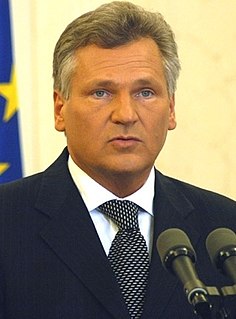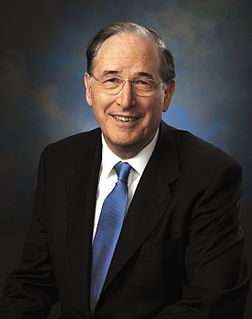A Quote by Adam Schiff
The war in Iraq has been extremely divisive here at home, and has also divided the world community.
Related Quotes
In every major war we have fought in the 19th and 20th centuries. Americans have been asked to pay higher taxes - and nonessential programs have been cut - to support the military effort. Yet during this Iraq war, taxes have been lowered and domestic spending has climbed. In contrast to World War I, World War II, the Korean War and Vietnam, for most Americans this conflict has entailed no economic sacrifice. The only people really sacrificing for this war are the troops and their families.
After 9-11, the President had a historic opportunity to unite Americans and the world in common cause. Instead, by exploiting the politics of fear, instigating an optional war in Iraq before finishing a necessary war in Afghanistan and instituting policies on torture, detainees and domestic surveillance that fly in the face of our values and interests, President Bush divided Americans from each other and from the world.
The difference between the Bush I war against Iraq and the Bush II war against Iraq is that in the first one, we appealed to the sentiments and interests of the different groupings in the region and had them with us. In the second one, we did it on our own, on the basis of false premises, with extremely brutality and lack of political skill.
World War Two was a world war in space. It spread from Europe to Japan, to the Soviet Union, etc. World War Two was quite different from World War One which was geographically limited to Europe. But in the case of the Gulf War, we are dealing with a war which is extremely local in space, but global in time, since it is the first 'live' war.
In my head, thought, I would love to do an interview where it's just sort of de-constructed - the talking points of Iraq - sort of the idea of, is this really the conversation we're having about this war? That if we don't defeat Al Qaeda in Iraq, they'll follow us home? That to support the troops means not to question that the surge could work. That, what we're really seeing in Iraq is not a terrible war, but in fact, just the media's portrayal of it.
I think what history will show is that one of the most tragic results of the war in Iraq will be that although Sharon, the Likudites, the Neoconservatives in our country, President Bush and the Democratic party thought the war in Iraq and destroying Saddam would benefit Israeli security, we're seeing absolutely that the war in Iraq has probably put Israeli security in a more tenuous condition than it's been in since the founding of the Israeli state.
[The Yellow Birds] is based on a novel written by Kevin Powers, who is an Iraq War vet. I play a soldier who promises my friend's mother I'm going to keep him alive. But when we go overseas to Iraq, he gets killed. It's about what happened to him, my reckoning and dealing with that as I return home from the war.


































